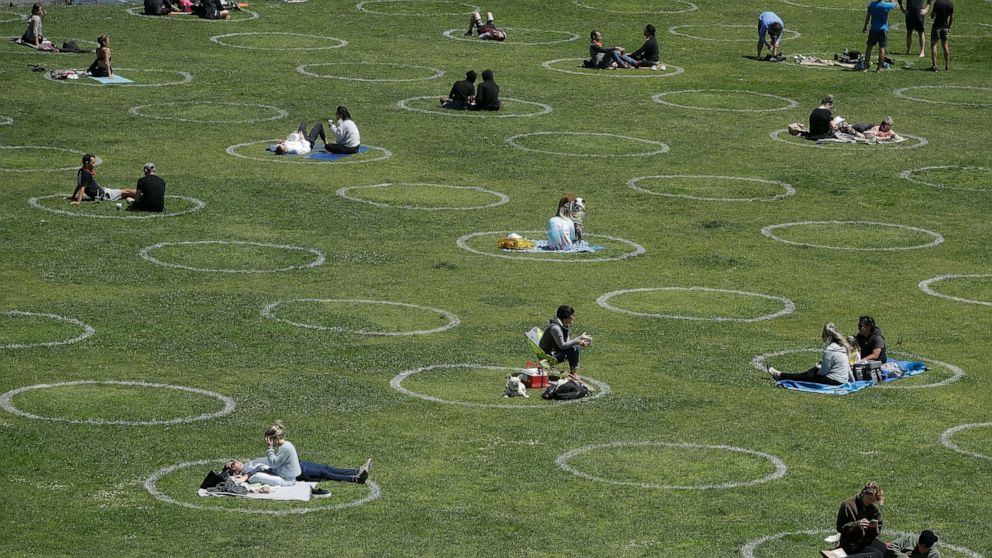[ad_1]
In the days leading up to the Fourth of July weekend, the U.S. has seen record numbers of new cases of COVID-19. Officials from Los Angeles County to Galveston, Texas, and Miami announced that beaches won’t be opening over the holiday weekend and fireworks displays have been canceled, all in an effort to limit the spread of the novel coronavirus.
Anticipating that people might gather for July Fourth, public health departments have been busy tweeting out safety tips and reminders that COVID-19 “won’t take a break for the holiday.”
“We cannot be complacent,” Dr. Barun Mathema, assistant professor of epidemiology at the Columbia University Mailman School of Public Health, told ABC News. “Erring on the side of caution is very much advised, because we are still very, very much in this pandemic.”
Mathema said it’s important to think of holidays like July Fourth and parties in general as super-spreading events, which can drive local transmission.
“As we are learning more about the transmission dynamics of this particular virus, the pools of transmission can be very, very large,” he said.
Outbreaks were tied to Memorial Day weekend parties, including one on the Jersey Shore that ended up infecting 12 people in Bucks County, Pennsylvania. Several states, including South Carolina, Texas, Arizona and Arkansas, saw upward trends in new coronavirus cases and hospitalizations in the weeks following Memorial Day.
Whether or not you attend a party would depend on your risk tolerance, Dr. Amesh Adalja, a senior scholar at the Johns Hopkins University Center for Health Security, told ABC News.
“Any activity that you do is going to have some risk,” he said. “The virus is going to be a risk that’s always there.”
To help protect yourself and those around you, it comes down to “practicing the very things we have been practicing,” Mathema said.
That includes proper mask usage, hand hygiene and social distancing around those outside your household or social bubble, both doctors said. The Centers for Disease Control and Prevention recommend staying at least 6 feet from people outside of your home, and washing your hands often with soap and water for at least 20 seconds.
Holding small gatherings outdoors is also crucial, the doctors said.
“The concern is when people that haven’t mixed yet are all congregating together in close quarters, where the virus is going to take that opportunity to spread,” Adalja said. “That’s what the biggest issue is.”
When you’re in small spaces indoors, you end up breathing a lot of uncirculated air, Mathema said. “Being outdoors is far better than certainly being indoors, where the amount of air volume is restricted and recirculated quite a bit,” he said.
Mathema said he would carefully consider the risks involved with including someone outside of a social bubble at a gathering.
“I would want to know, what sort of risks are they introducing to me? What sort of risks am I introducing to them and their network?” said Mathema, who stressed the importance of social distancing in those cases.
“The level of risk one wants to carry goes beyond the individual. I think that’s a point we keep on having to repeat,” he added. “It’s really important for us as a society to think very hard about what kinds of risks we want to put ourselves, our families, our communities through.”
What to know about the coronavirus:
Tune into ABC at 1 p.m. ET and ABC News Live at 4 p.m. ET every weekday for special coverage of the novel coronavirus with the full ABC News team, including the latest news, context and analysis.
[ad_2]
Source link

